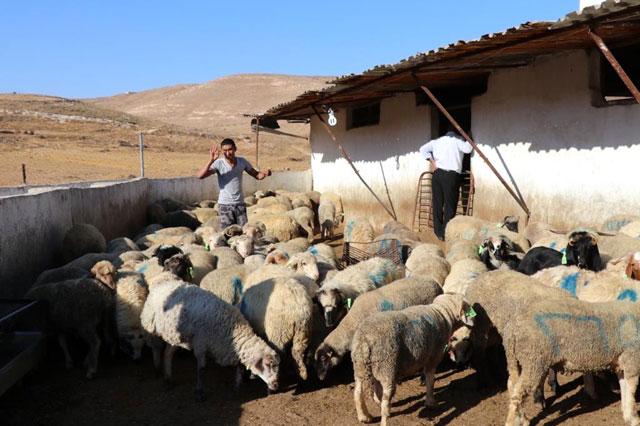- Local News
- Web-2020-08-05 | 03:54 pm

"Unexpectedly, demand was exceptionally high,” Ali Al Saadi, owner of a cattle farm in Ramtha, Irbid, told The Jordan Times on Tuesday over the phone.
"The demand was mostly for calves, as well as Romanian sheep, and there were good sales for local sheep as well,” Saadi said, adding that none of the designated locations for selling livestock returned any of the cattle to the main farm.
Saadi said the turnout was double that of last year during Eid Al Adha. He noted that Romanian sheep sold 50 per cent more than last year while local sheep sold around 25 per cent more.
"As the Hajj was very minimal this year, all the sacrifices took place here, so the demand was a lot more than it was last year,” Abu Sanad, a meat shop owner and livestock merchant in Marj Al Hamam in Amman, said on Tuesday.
In a phone call, Abu Sanad noted that demand for imported sheep was more than in comparison with the local ones. Overall it was a lot more as Jordanian pilgrims remained in the Kingdom and sacrificed sheep locally instead of in Saudi Arabia during Hajj.
Before Eid, livestock merchants told The Jordan Times that demand was good, but they expected that the economic conditions imposed by the pandemic would deter people from sacrificing.
In celebrating Eid Al Adha or the Feast of the Sacrifice, Muslims mark the end of a major ritual in Islam, the Hajj or the greater pilgrimage to Mecca.
During Eid Al Adha, Muslims of sufficient means are required to sacrifice livestock in remembrance of Prophet Ibrahim’s willingness to sacrifice his son Ismail to God, according to Muslim beliefs.









